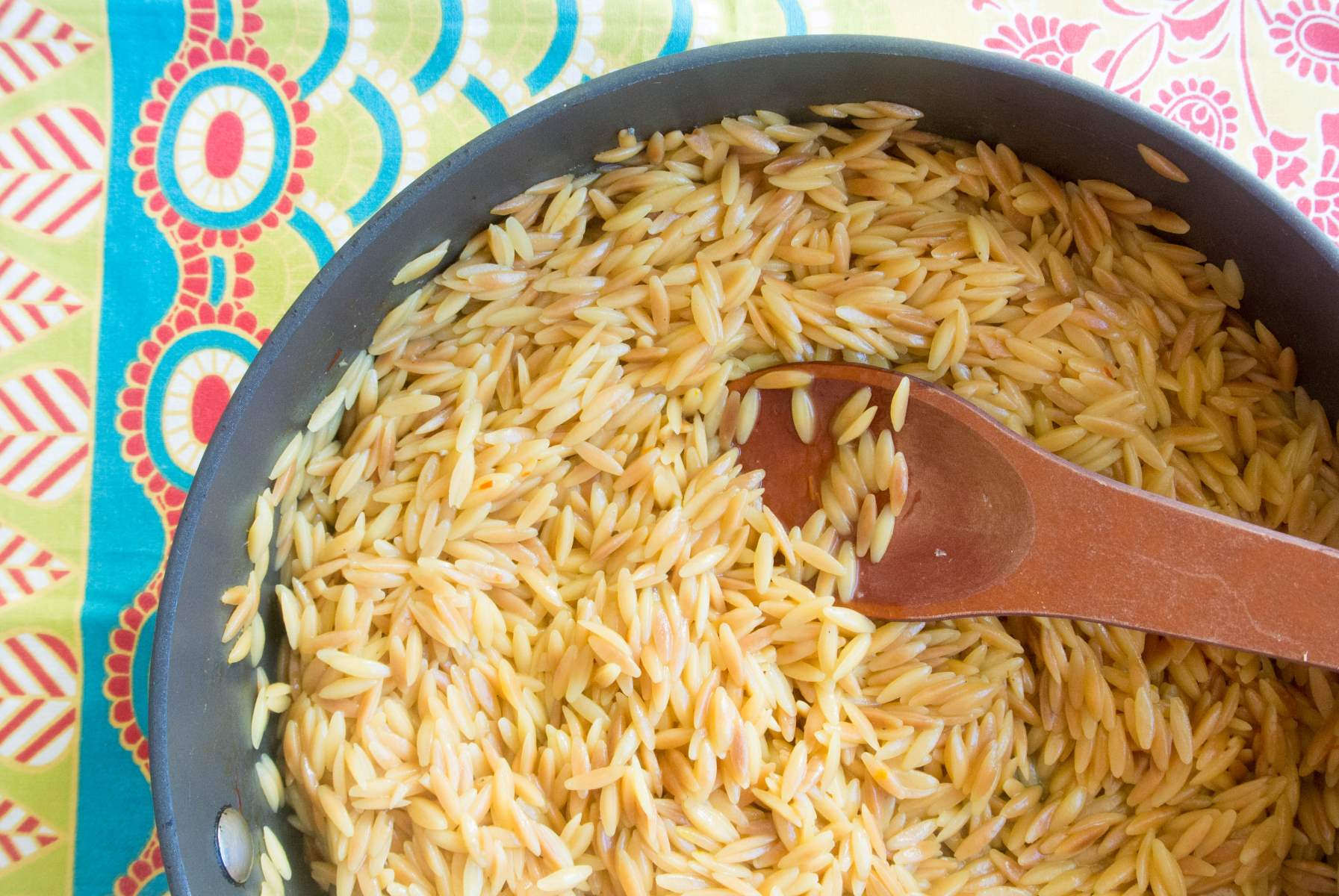
Are you curious about the nutritional benefits of orzo when it’s cooked? Look no further! In this article, we will dive into the 20 orzo nutrition facts that you need to know. Orzo, a type of pasta that resembles rice grains, is not only delicious but also packed with various nutrients that are beneficial for your overall health. Whether you are a fan of this versatile pasta or just getting familiar with it, understanding its nutritional value can help you make informed choices for your meals. From its rich carbohydrate content to its vitamins and minerals, we will explore the essential nutrients found in cooked orzo. So, let’s dig in and discover the amazing nutritional profile of this delightful pasta!
Key Takeaways:
- Orzo is a nutritious and versatile carbohydrate option, providing energy and essential nutrients like protein and fiber. It’s low in fat and sodium, making it a healthy choice for weight management and blood pressure control.
- With its abundance of vitamins and minerals, orzo supports overall well-being and bodily functions. It can be enjoyed in various dishes, making it a popular choice for both home cooks and professional chefs.
Nutrition Calories
One cup of cooked orzo contains approximately 200 calories.
Nutrition Carbohydrates
Orzo is a good source of carbohydrates, with around 42 grams per cooked cup.
Nutrition Protein
Orzo provides about 7 grams of protein per cup when cooked.
Nutrition Fiber
A single serving of orzo contains 3 grams of dietary fiber, aiding in digestion.
Nutrition Fat
Orzo is low in fat, with less than 1 gram per cooked cup.
Nutrition Sodium
Cooked orzo has a low sodium content, typically around 10 milligrams per serving.
Nutrition Potassium
Orzo provides a moderate amount of potassium, with approximately 50 milligrams per cup.
Nutrition Calcium
One cup of cooked orzo contains about 20 milligrams of calcium.
Nutrition Iron
Orzo is a good source of iron, providing around 1 milligram per cooked cup.
Nutrition Vitamin B3
Cooked orzo contains approximately 3 milligrams of niacin, a form of vitamin B3.
Nutrition Vitamin B6
One cup of orzo provides about 0.2 milligrams of vitamin B6.
Nutrition Vitamin E
Orzo contains small amounts of vitamin E, with around 0.1 milligrams per serving.
Nutrition Zinc
Cooked orzo is a source of zinc, with approximately 1 milligram per cup.
Nutrition Magnesium
Orzo provides about 15 milligrams of magnesium per cooked cup.
Nutrition Phosphorus
Cooked orzo contains approximately 60 milligrams of phosphorus.
Nutrition Vitamin B1
One cup of orzo provides about 0.1 milligrams of thiamin, also known as vitamin B1.
Nutrition Vitamin K
Orzo contains small amounts of vitamin K, with around 0.1 micrograms per serving.
Nutrition Folate
Cooked orzo is a good source of folate, providing approximately 20 micrograms per cup.
Nutrition Choline
Orzo contains choline, with around 15 milligrams per serving.
Nutrition Selenium
One cup of cooked orzo contains about 10 micrograms of selenium.
Overall, orzo is a versatile and nutritious carbohydrate option. It is a great source of energy, providing essential nutrients like carbohydrates, proteins, and fiber. Orzo is low in fat and sodium, making it a healthy choice for those looking to watch their weight or manage their blood pressure levels.
Furthermore, orzo contains various vitamins and minerals like iron, vitamin B3, vitamin B6, and calcium. These nutrients are essential for maintaining overall well-being and supporting various bodily functions.
Incorporating orzo into your diet can contribute to a balanced and healthy eating plan. It can be enjoyed in a variety of dishes, including salads, soups, and pilafs. The versatility of orzo makes it a popular choice for both home cooks and professional chefs.
Conclusion
In conclusion, orzo is a versatile and nutritious grain that provides a range of health benefits. Whether cooked as a side dish, added to soups and salads, or used as a substitute for rice or pasta, orzo is a delicious and satisfying addition to any meal. Its high fiber content promotes digestive health, while its iron and magnesium content supports energy production and muscle function.
Furthermore, orzo is a good source of B vitamins, which are essential for maintaining a healthy metabolism and promoting brain health. With its low calorie and fat content, orzo is a smart choice for those looking to watch their weight or maintain a balanced diet.
So why not incorporate orzo into your next meal? Its unique texture and nutty flavor make it a delightful addition to a variety of dishes, while its nutritional profile ensures you’re reaping the benefits of this underrated grain. Get creative in the kitchen and enjoy the wholesome goodness that orzo has to offer!
FAQs
1. Is orzo gluten-free?
No, orzo is made from durum wheat and therefore contains gluten. Individuals with gluten intolerance or celiac disease should avoid consuming orzo.
2. How do I cook orzo?
To cook orzo, simply boil it in a pot of salted water for 8-10 minutes until it is tender but still firm to the bite. Drain the cooked orzo and rinse it with cold water to prevent clumping. It can then be used in various recipes or served as a side dish.
3. Can I substitute orzo with other grains?
Absolutely! If you don’t have orzo on hand, you can substitute it with other small-sized pasta like rice-shaped pasta, such as risoni, or pearl couscous. You can also use quinoa or bulgur wheat as alternatives for a different texture.
4. How long can I store cooked orzo?
Cooked orzo can be stored in an airtight container in the refrigerator for up to 3-4 days. Make sure to allow it to cool completely before storing to prevent bacterial growth.
5. Are there any nutritional differences between white and whole wheat orzo?
Whole wheat orzo is made from whole wheat flour, which retains the bran and germ layers and provides more fiber, vitamins, and minerals compared to refined white orzo. However, the taste and texture of whole wheat orzo may differ slightly from the traditional variety.
Was this page helpful?
Our commitment to delivering trustworthy and engaging content is at the heart of what we do. Each fact on our site is contributed by real users like you, bringing a wealth of diverse insights and information. To ensure the highest standards of accuracy and reliability, our dedicated editors meticulously review each submission. This process guarantees that the facts we share are not only fascinating but also credible. Trust in our commitment to quality and authenticity as you explore and learn with us.


